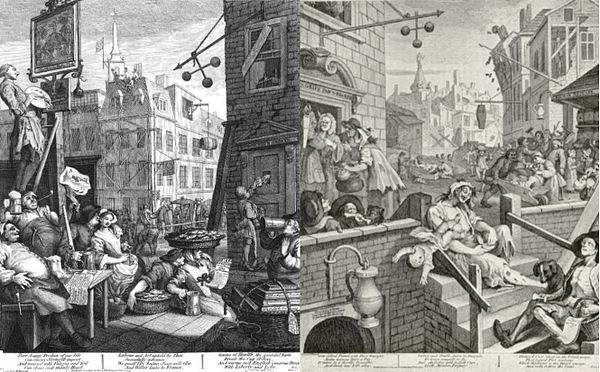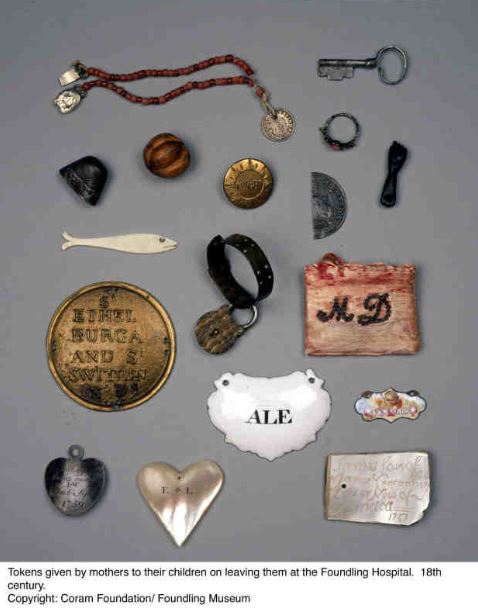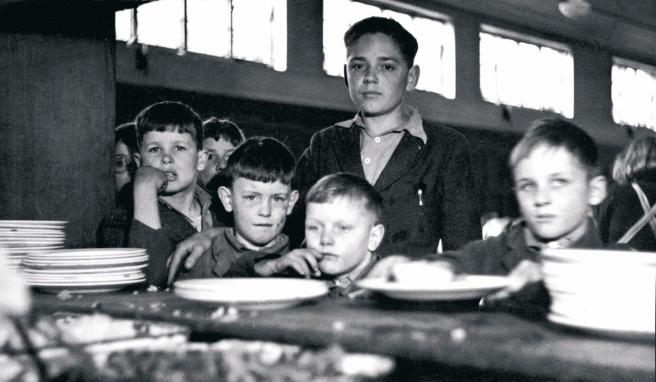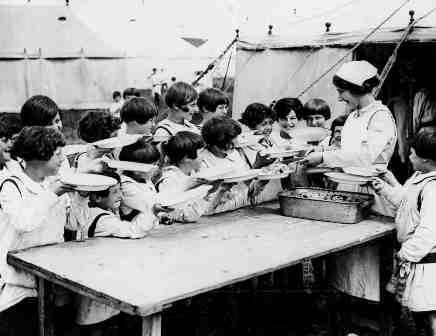
Coram is probably the best known charity you’ve never heard of. Heard of the Foundling Hospital in London? That’s the one.
As I’ve mentioned, in April I am running the London Marathon for Coram. As one of my company’s corporate charities they often come along and give us a presentation at our work functions. Last spring they did exactly that. A very engaging and friendly young lady called Maya gave us an interesting talk and mentioned that my colleague Ade, who has run the marathon for them in the past, had decided to hang up his endurance trainers and give someone else a turn.
Maya asked for volunteers. I stuck my hand up.
Now I don’t usually run for charity. I’ve done it a couple of times in the past, but it’s not something I’ve taken on for a long time. Coram is the UK’s oldest children’s charity, and is mainly concerned with adoption. Despite my Little Big Sis’s best efforts to convince me otherwise when we were children ourselves I have no direct connection with adoption in my life (as far as I know).
So why Coram?
Well first, a bit of background on the charity is in order.
The Foundling Hospital was founded in 1739 by Thomas Coram. Coram was a shipwright and sea captain who had business interests in the Americas. As well as being something of an entrepreneur, Coram had a reputation for being public spirited and charitable; there are several examples of him taking charitable concerns into account during his business life and even working to change things for the benefit of the workers. He put forward a scheme in 1735 to settle unemployed English artisans in Nova Scotia, and on one occasion he effected a change to colonial regulations in favour of English hat makers. Delightfully this story about him concludes with the detail that the only payment he would accept for doing this was…a hat!
Anyway, on returning to England from America in the early 18th century Coram was horrified by what he saw in the streets of London. The rookeries and gin dens captured so vividly in Hogarth’s ‘A Rake’s Progress’, ‘Beer Street’ and ‘Gin Lane’ depicting the Bloomsbury and St Giles areas of London were not drawn from imagination. Mother’s Ruin gin was called, and it was aptly named. Coram reached his limit when he saw starving children in the streets, some of them already beyond his help. He decided to do something about it.

He began to lobby for a Foundling Hospital to be established. It took him 17 years, but Coram wasn’t a man to give up easily. A few months ago Maya took us around the Foundling Museum, and told us about a particularly brilliant tactic of his which was to go to the wives of prominent London gentlemen and get them to join him in campaigning for something to be done. When the Royal Charter for the Foundling Hospital was eventually granted by King George II in 1739, Coram made sure to ask that any thanks given to him for setting the hospital up was shared with the 21 ladies of influence who had helped him by continuing to nag their husbands until they gave in!
Originally the Foundling Hospital was set up in houses in Hatton Garden, and the first children were admitted in 1741. To start with children were taken in without any questions asked, but to identify them should a parent come back for them a token was left with each child. There is a very touching display of these at the Foundling Museum – some are as simple as a piece of their mother’s petticoat, if that was all she had to give. Others are beads or brooches – some are rich enough items that they must have been from unmarried affluent ladies not able to keep their child out of fear of scandal. Each of the tokens shown in the display have a touch of sadness – although the children would be safe and cared for, these little tokens have more than a small sense of sacrifice about them.

The children at the hospital lived lives of routine. They wore a uniform and roomed in dormitories, and were educated so that they would be ready to take up work as servants or apprentices when they left. It wasn’t an easy life for a child, but then that is true of most children’s lot in the 18th century and the alternative doesn’t bear thinking about. The Coram children were well fed, safe, clean and getting an education.

Coram had some friends in high places who were able to help, his army of influential wives notwithstanding. The artist Hogarth presented a portrait of Coram to the hospital in 1740 and Handel gave concerts for the benefit of the hospital on more than one occasion, including performances of his Messiah.
The Foundling Hospital continued its work for nearly 200 years until the 1920’s when a relocation to Berkhamstead took place. Eventually the original building was demolished and a new hospital built in Hertfordshire in 1935. Gradually the trend moved away from institutions like the Foundling Hospital and towards family-centric solutions including foster care and adoption. The Foundling Hospital changed its name to the Thomas Coram Foundation for Children, and continues its work today under the working name Coram.

Interestingly, or perhaps tellingly, Thomas Coram was happily married for 40 years but he and his wife never had any children of their own.
Anyway, where am I going with this history lesson? Why am I running for Coram?
Well, aside from the good work they do creating new families and supporting children who have been adopted, there were two things Maya mentioned in that presentation last year which really jumped out at me.
Firstly, through the Coram Life Education programme and with the help of their mascot Harold the Giraffe, Coram support up to 675,000 children nationwide with educational school visits. You know the kind of thing – where some lovely people rock up in a mobile classroom or come into the assembly hall and give you a much more interesting lesson than you’d usually have got? Part of this outreach work is called bCyberwise and teaches children how to stay safe online and how to become good cyber citizens. It was this which struck a chord with me, particularly when Maya mentioned that this work helps to combat cyber bullying. This is so important, and it’s quite an emotive subject for me.
I was bullied at school as a young teenager. So was my sister. In my case it was verbal, but it was all day every day for the duration of the school year, for three years. It felt relentless, and it’s safe to say my sister’s experience was worse than mine. I can’t even begin to imagine how either of us would have coped if home wasn’t a safe space. That doesn’t happen with cyber bullying. You can’t close your bedroom door and leave the bullies locked outside. With the ubiquitous nature of social media they are carried with you everywhere.
Bullying in all its forms is a vile and offensive thing. It’s utterly pointless but will leave scars long after it has been stopped. I’m convinced that my experience is the reason why I still have anxiety and a tendency to catastrophise. I decided I would like to help Coram in their work fighting against both the cause and effects of bullying.
The second reason I volunteered to run for Coram is because they are involved in helping to care for some of the refugee children coming to the UK from places like Syria.
The global migrant crisis of the past few years is something no one can have failed to notice. We have all seen the news reports, and been horrified at the scale of this humanitarian tragedy. Maybe, like me, you were also horrified to hear that although the UK government was willing to accept a number of refugee children, the invitation of a safe haven was not extended to their parents. What was going to happen to these kids, who had already gone through so much?
Maya told us at that meeting last year about Coram’s work to help these children, who arrive here unable to speak the language, without their families. Coram’s Migrant Children’s Project works to promote the rights of migrant and refugee children and young people, and to ensure they have the support and protection they need to find their way in our society so they are not simply left to fend for themselves. They help them with access to healthcare, housing and education. Coram are the only national provider of this type of help and they need to make sure they can grow their programme to be able to meet the needs of the increasing numbers of vulnerable children who find their way here. If they are not supported, then they are at severe risk of destitution, exploitation, and later radicalisation.
I won’t even pretend that I understand all the causes of the conflict in Syria. I do try to stay well informed but the complexity of the political situation is quite a long way past my capacity to process. What I can understand, what hopefully all of us can understand, is that it is definitely not the fault of the children, young people and innocent civilians caught up in the unimaginable horror and destruction in places like Aleppo. And what I also understand is that those of us safely in the west are certainly not blameless in terms of contributing to the many and varied causes of the civil war. We must therefore bear our responsibility as well. The opportunity to help provide some practical, valuable help to these children and young people is not one I was willing to turn down, quite frankly.
So those are the two reasons why I am running for Coram, and why I’m asking if you could see your way clear to chucking a few quid into the sponsorship pot.
Go on. It’s not like I ask very often.
http://uk.virginmoneygiving.com/AngelaDuff

Your reasons for raising money for the charity really resonates with me. I was also bullied as a child and it still bothers me when I see those people all grown up on social media.
LikeLiked by 1 person
When they ask to be friends it still sticks in my craw – I just think why would I want to? Why would they want to? And ignore it.
LikeLiked by 1 person
Good for you. I didn’t realize it bothered me so much until I talked it over with someone. They just told me to unfriend them and be done with it. I feel a lot better after doing it. 🙂
LikeLike
A friend of mine made a really good point to me a few years back; they are probably not thinking much about what effect their actions or words had on you, so try to let it go because if you keep letting it cause you distress of any sort then they still win. And they shouldn’t get to win. That helped me a lot. You’ve got people in your life who actually deserve your time, just get rid of the ones who don’t!
LikeLiked by 1 person
Well said. 🙂
LikeLiked by 1 person
You’re right. I hadn’t heard of the charity but was aware of the Foundling Hospital (and museum which is on my must visit list). It’s certainly worthy of support.
LikeLiked by 1 person
The Paypal gizmo isn’t working on the page at the moment. Will try again later.
LikeLiked by 1 person
Thank you! 😀
LikeLike